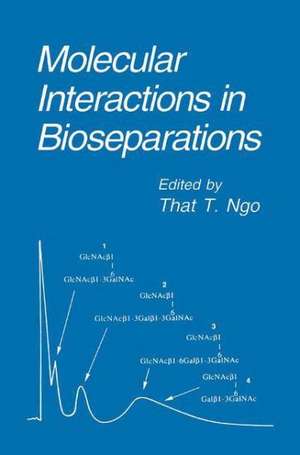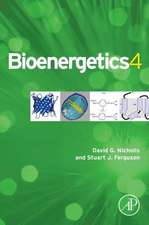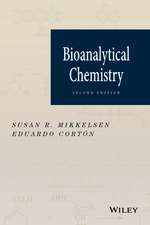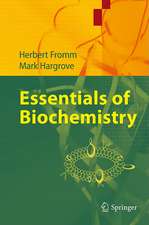Molecular Interactions in Bioseparations
Editat de That T. Ngoen Limba Engleză Paperback – 19 iun 2013
| Toate formatele și edițiile | Preț | Express |
|---|---|---|
| Paperback (1) | 1225.28 lei 6-8 săpt. | |
| Springer Us – 19 iun 2013 | 1225.28 lei 6-8 săpt. | |
| Hardback (1) | 1245.22 lei 6-8 săpt. | |
| Springer Us – 30 dec 1993 | 1245.22 lei 6-8 săpt. |
Preț: 1225.28 lei
Preț vechi: 1494.23 lei
-18% Nou
Puncte Express: 1838
Preț estimativ în valută:
234.49€ • 242.24$ • 195.15£
234.49€ • 242.24$ • 195.15£
Carte tipărită la comandă
Livrare economică 26 martie-09 aprilie
Preluare comenzi: 021 569.72.76
Specificații
ISBN-13: 9781489918741
ISBN-10: 1489918744
Pagini: 592
Ilustrații: XVII, 570 p.
Dimensiuni: 155 x 235 x 31 mm
Greutate: 0.82 kg
Ediția:Softcover reprint of the original 1st ed. 1993
Editura: Springer Us
Colecția Springer
Locul publicării:New York, NY, United States
ISBN-10: 1489918744
Pagini: 592
Ilustrații: XVII, 570 p.
Dimensiuni: 155 x 235 x 31 mm
Greutate: 0.82 kg
Ediția:Softcover reprint of the original 1st ed. 1993
Editura: Springer Us
Colecția Springer
Locul publicării:New York, NY, United States
Public țintă
ResearchDescriere
Rapid advances in molecular biology have accelerated the production of a great number of protein-based therapeutic agents. The major cost in producing these proteins appears to be associated with their purification from the complex mixture of the crude extract. A major challenge to the protein biochemist and the biochemical engineer is the development of rapid, efficient, and cost-effective purification systems. This volume presents state-of-the-art reviews of current methods used in the purifica tion of biological macromolecules that are based on molecular interactions. Thus, the major emphasis is placed on affinity-related techniques. Part I provides a general introduction to affinity chromatography and includes a chapter describing an interesting new technique called "slalom chromatography" for DNA fractionations. Affinity chromatography using molecules of biological origin as the affinity ligand is covered in Part II. Part III describes the use of a special class of biomolecules, antibodies, as affinity ligands. Affinity chromatography with biomimetic ligands is discussed in Part IV. Newer concepts and their applications in bioseparation are presented in Part V. Part VI covers affinity-related techniques such as affinity-based extracorporeal shunts, affinity electrophoresis, affinity precipitation, and affinity extraction. I would like to express my sincere thanks to all the authors, who are recognized experts in their respective fields, for their cooperation and contributions. I thank the editorial staff of Plenum Press for their professionalism, and Mary Phillips Born, Senior Editor, for her encouragement. The support of my family (Ping and Peilin) made it possible to complete editing this book. That T.
Cuprins
General Introduction: Affinity Chromatography (I. Parikh, P. Cuatrecasas). Weak Affinity Chromatography (S. Ohlson, D. Zopf). Affinity Chromatography with Biological Ligands: Applications of Bacterial ImmunoglobulinBinding Proteins to the Purification of Immunoglobulins (M.D.P. Boyle et al.). ReceptorAffinity Chromatography (M. Nachman et al.). Immunoaffinity Separation: Immunoaffinity Purification of Organelles (P.J. Richardson, J.P. Luzio). Affinity Chromatography with Biomimetic Ligands: Affinity Chromatography with Immobilized Dyes (E. Stellwagen). Novel Concepts and Applications: Biorecognition in Molecularly Imprinted Polymers (G. Wulff). AffinityRelated Techniques: Model Systems Employing Affinity Chromatography for Extraction of Toxic Substances Directly from Whole Blood (S. Margel, L. Marcus). 27 additional articles. Index.









